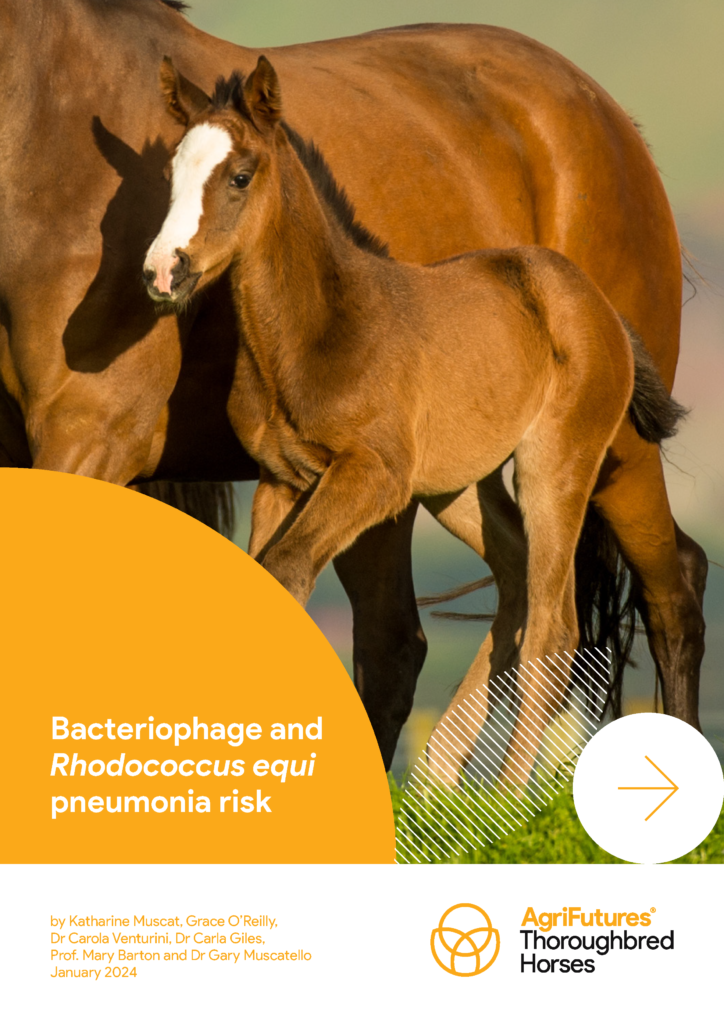Snapshot: Antimicrobial prescribing guidelines for horses
This document represents the first comprehensive resource providing detailed guidance on the management and treatment of common bacterial diseases in horses in Australia. Key highlights...
 THOROUGHBRED HORSES
THOROUGHBRED HORSES 
83 pages
Published: 28 Oct 2024
Author(s): Katharine Muscat, Grace O’Reilly, Carola Venturini, Carla Giles, Mary Barton, Gary Muscatello
ISBN: 978-1-76053-497-4
Download report PDF
DownloadPurchase a hard copy - AUD $50
The Australian thoroughbred industry is a significant economic and cultural sector, yet faces the persistent challenge of Rhodococcus equi-induced bronchopneumonia, colloquially known as ‘rattles’. This disease compromises the health of foals and imposes a substantial financial burden due to the high costs associated with its diagnosis and treatment.
The absence of a vaccine leaves the industry reliant on early detection and environmental management to mitigate transmission. Despite these efforts, endemic infections persist and the emergence of antibiotic-resistant strains of R. equi is a growing concern.
This research addresses the urgent need for innovative solutions by exploring the application of bacteriophages as a biological control method. Bacteriophages, or phages, are viruses that specifically target bacteria, offering a potential strategy to curb the environmental proliferation of R. equi on farms. The study’s findings reveal that phages can effectively reduce R. equi populations in soil and within macrophages, suggesting a promising avenue for disease control.
The implications of these findings are profound. By integrating phage therapy into existing management practices, owners and managers can significantly lower the incidence of rattles, enhance the welfare of foals and reduce the economic strain on the industry. The key recommendation is the adoption of phage-mediated interventions as part of a comprehensive disease management strategy.
The experimental findings provide optimism to move forward with field trials to determine whether phage cocktails can be used to suppress the growth of virulent R. equi on farms. Leveraging the specificity and efficacy of phages could revolutionise the approach to combating rattles, paving the way for a healthier and more sustainable equine future.